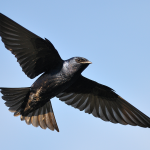Faculty of Science News Archive

Faculty of Science
CTV Your Morning: AI in 2026: Hype vs. reality
January 5, 2026 —
David Gerhard, head of computer science at the University of Manitoba, breaks down what AI may actually mean for workers, students and businesses.

Faculty of Science
CTV News: How to avoid holiday scams
December 12, 2025 —
CTV's Maralee Caruso speaks with University of Manitoba's David Gerhard, who is head of the University of Manitoba’s computer science department, about how you can avoid falling victim to frauds and schemes over the holidays.

Faculty of Science
CBC: Winnipeg moves to scrap bird-friendly window bylaw developers argue is barrier to development
December 7, 2025 —
Conservationists are raising concerns as the City of Winnipeg considers walking back a development bylaw designed to help save birds from fatal window strikes, less than a year after the rules came into effect. "I'm kind of ... shocked," said Dr. Kevin Fraser, associate professor of biological sciences at the University of Manitoba who focuses on bird migration and ecology.

Faculty of Science
CBC: What can you look out for when online banking?
December 2, 2025 —
Dr. Celine Latulipe, professor in the department of computer science at the University of Manitoba, joins CBC's Marcy Markusa to respond to the news of couple who experienced online banking fraud and her research into older adults using online banking.

Faculty of Science
Winnipeg Free Press: Big data, big footprint
November 14, 2025 —
Premier Wab Kinew has been dropping hints the province could soon look to position itself as a leader in what some commentators are calling the “fourth industrial revolution.” “All the internet is, is someone else’s computer,” said Dr. John Anderson, computer science professor at the University of Manitoba who has spent his career researching artificial intelligence.

Faculty of Science
Classic 107: University of Manitoba student wins Winnipeg Crime Stoppers website redesign challenge
November 12, 2025 —
Hamza Haque, a second-year Bachelor of Science student at the University of Manitoba and a dual-credit graduate of the PTEC/MITT Software Development program, won the challenge with his user-friendly interface, accessibility, and modern design.

Faculty of Science
CBC News: Sask. content creator says she’s frustrated after Facebook mistakenly took down 22,000-follower page
November 11, 2025 —
Nevertheless, David Gerhard, head of computer science at the University of Manitoba, says he doubts they will ever reach the level of a human being.

Research and International
From Manitoba to Berlin: Breaking Walls in Antibiotic Resistance!
November 5, 2025 —
Dr. Hans-Joachim Wieden and Luma Clarindo Lopes are heading to the 2025 Falling Walls Science Summit in Berlin.

Three UM leaders among 2025 most powerful women in Canada
October 30, 2025 —
Three UM community members have been named among Canada’s 100 Most Powerful Women in 2025, recognized for their leadership, vision, determination, passion and mentorship of others.

Faculty of Science
CBC’s As It Happens Podcast: When a polar bear kills, it doesn’t just eat. It feeds a whole ecosystem
October 29, 2025 —
“If we lose polar bears from the Arctic … nothing can replace that,” Holly Gamblin, Lead author and wildlife biologist at University of Manitoba, told As It Happens host Nil Köksal. “There's no other comparable species that is doing this.”






